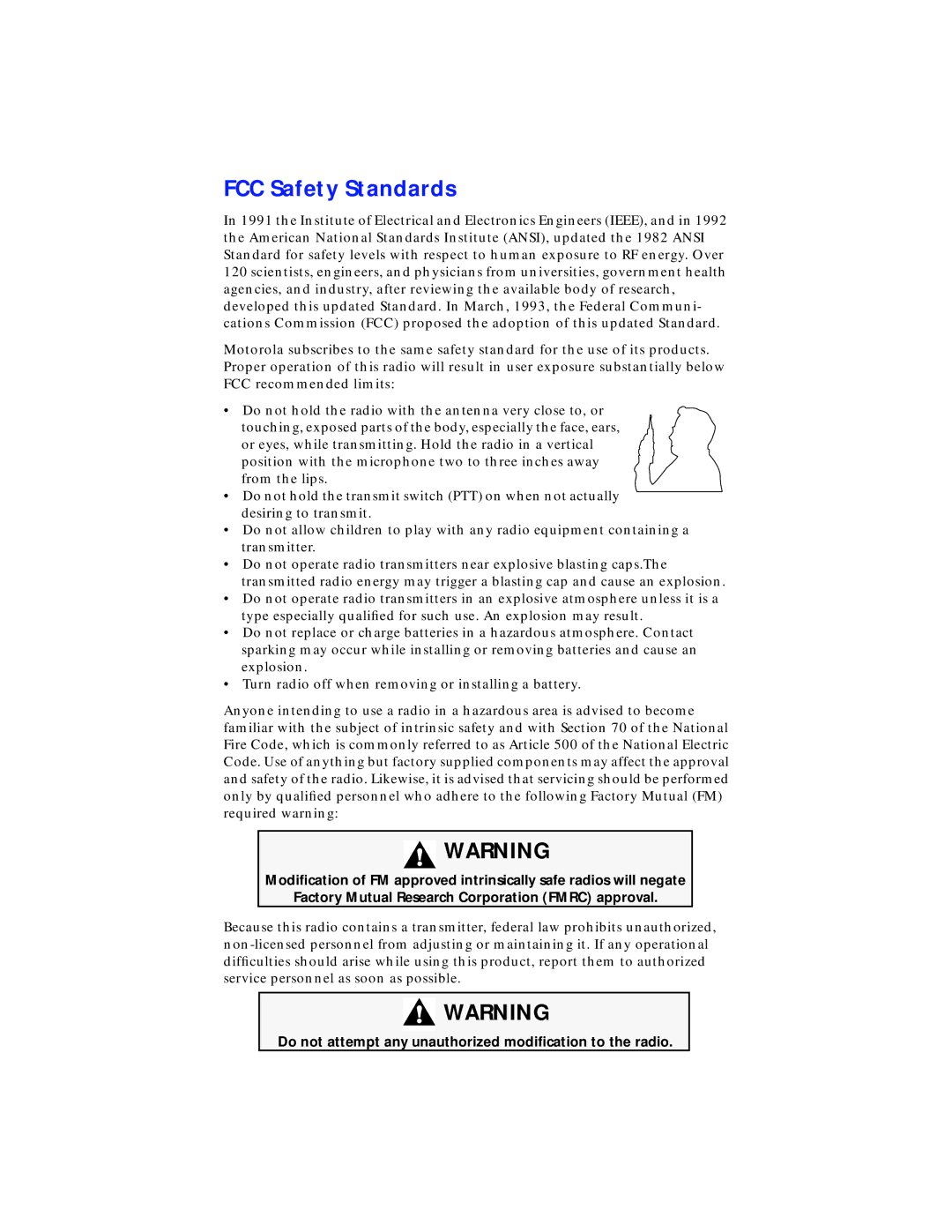
FCC Safety Standards
In 1991 the Institute of Electrical and Electronics Engineers (IEEE), and in 1992 the American National Standards Institute (ANSI), updated the 1982 ANSI Standard for safety levels with respect to human exposure to RF energy. Over 120 scientists, engineers, and physicians from universities, government health agencies, and industry, after reviewing the available body of research, developed this updated Standard. In March, 1993, the Federal Communi- cations Commission (FCC) proposed the adoption of this updated Standard.
Motorola subscribes to the same safety standard for the use of its products. Proper operation of this radio will result in user exposure substantially below FCC recommended limits:
•Do not hold the radio with the antenna very close to, or touching, exposed parts of the body, especially the face, ears, or eyes, while transmitting. Hold the radio in a vertical position with the microphone two to three inches away from the lips.
•Do not hold the transmit switch (PTT) on when not actually desiring to transmit.
•Do not allow children to play with any radio equipment containing a transmitter.
•Do not operate radio transmitters near explosive blasting caps.The transmitted radio energy may trigger a blasting cap and cause an explosion.
•Do not operate radio transmitters in an explosive atmosphere unless it is a type especially qualified for such use. An explosion may result.
•Do not replace or charge batteries in a hazardous atmosphere. Contact sparking may occur while installing or removing batteries and cause an explosion.
•Turn radio off when removing or installing a battery.
Anyone intending to use a radio in a hazardous area is advised to become familiar with the subject of intrinsic safety and with Section 70 of the National Fire Code, which is commonly referred to as Article 500 of the National Electric Code. Use of anything but factory supplied components may affect the approval and safety of the radio. Likewise, it is advised that servicing should be performed only by qualified personnel who adhere to the following Factory Mutual (FM) required warning:
!WARNING
Modification of FM approved intrinsically safe radios will negate
Factory Mutual Research Corporation (FMRC) approval.
Because this radio contains a transmitter, federal law prohibits unauthorized,
!WARNING
Do not attempt any unauthorized modification to the radio.
